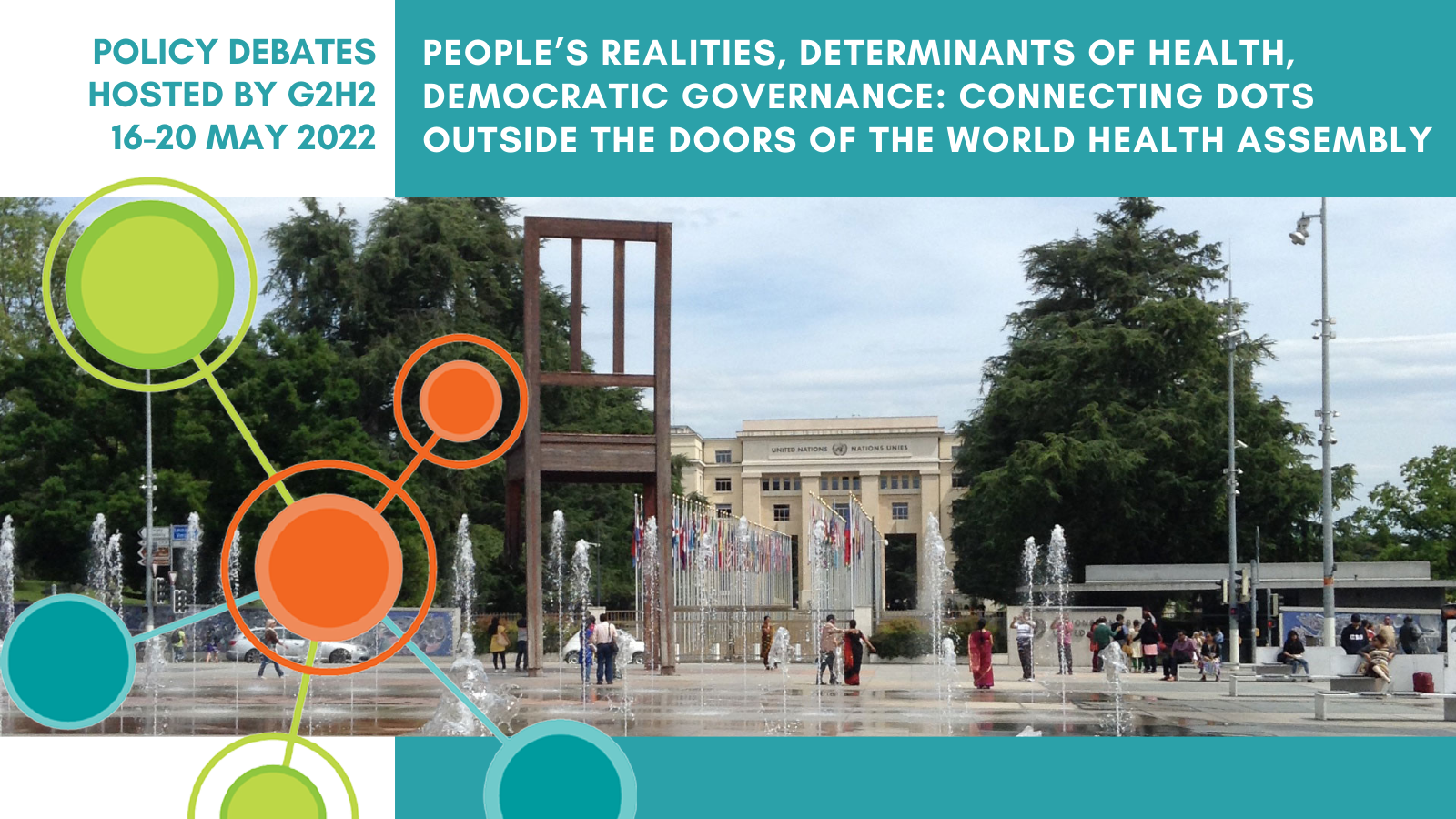Maria Neira, director Climate and Health at the World Health Organization (WHO) will speak at the webinar “A tobacco law for the fossil fuel industry” Thursday May 19th. The webinar will explore how the global health sector can help advance a ban on fossil advertising like the ban on tobacco ads. The webinar is organized by Reclame Fossielvrij and global health advocacy organizations MMI, KLUG and G2H2 in the run up to the World Health Assembly. Press is welcome to join.
Date: Thursday May 19th 2022
Time: 13 – 14.30 hrs CEST
Location: Zoom (registration)
Speakers list: see below
The implications of climate disruption and pollution for health, mortality and poverty are severe. Yet these crises are still being fueled by countless advertisements that promote fossil fuel industries, air travel and fossil fueled cars day in day out. Fossil advertising is a big obstacle in the transition to a healthy, sustainable and just society.
The number of deaths annually (13 million worldwide) caused by fossil fuel induced climate disruption surpasses deaths caused by tobacco. Tobacco ads were banned as part of an integrated policy to curb down tobacco use and the power of the tobacco industry. The Framework Convention on Tobacco Control, under which tobacco ads are banned, is the first international treaty negotiated in the name of the WHO. How can the health sector now advance a global ban on fossil advertising to curb down fossil fuel usage and the power of the fossil fuel industry? This question is discussed at the zoom webinar tomorrow by five prominent speakers from the global health sector.
“Advertising for fossil fuel industry, air travel and fossil fueled cars are highly pervasive across the globe. They are promoting fossil fuel usage, which negatively impacts our health and the health of the planet sustaining us. They are creating a misleading ‘green’ image of the fossil fuel industry while we, as young people, are calling on urgently ending use of fossil fuels and advocating for just transition. Such advertisements are fueling the climate crisis which is exacerbating health inequities worldwide.” Omnia al Omrani, medical doctor at a hospital in Caïro and youth representative at the European Commision.
The zoom webinar is organised by Reclame Fossielvrij together with international public health organizations Medicus Mundi International Network (MMI), Deutsche Allianz Klimawandel und Gesundheit (KLUG) and the Geneva Global Health Hub (G2H2).
Some facts about fossil ads
- Fossil ads lead to growing demand for fossil fuels. All ads worldwide for flying and cars in one year add up to 606 million ton CO2– about the same as 75 big coal powered plants. A big part of these emissions could easily have been avoided with a tobacco-like ban on fossil ads.
- Fossil advertising is also used to spread harmful disinformation about ‘solutions’ for the climate problem, for example by promising car drivers and air travelers that they can offset their fossil fuel emissions by paying a few bucks for CO2 compensation projects. This is a misleading practice and seriously undermines the mass behavioral change that is needed to tackle the planetary health crisis.
- Fossil ads are part of the lobby of fossil fuel industry for policy that is favorable to their business model. Ads by the fossil fuel industry typically flourish around important political decision moments, discovered Robert Brulle from Brown University.
- Advertising has been framing fossil gas as a ‘clean transition fuel’ and ‘solution’ to climate change. Yet research has proved that gas is often more harmful than coal because of methane leakage. And new research by Health and Environment Alliance (HEAL) uncovers the health damage by burning fossil gas.
Background information about the webinar ‘A tobacco law for the fossil fuel industry’
Damage to planetary health is fueled by advertisements that promote polluting companies and tempt citizens into polluting lifestyle choices. Like tobacco, air pollution by the fossil fuel industry is killing millions of people yearly (WHO). The fossil fuel industry uses a similar playbook as the tobacco industry. Yet, there is no regulation for the fossil fuel industry that prevents advertising, sponsoring, and marketing of their products and services.
The Framework Convention for Tobacco Control by the WHO (FCTC) has been effective in reducing the power of the tobacco industry and the daily temptations for (new) smokers. A similar Convention for the fossil fuel industry will stop the promotion, misleading messages and lobby by polluting companies and will shift norms and values in society. Subsequently, it will lower emissions of GHGs and other pollution and create a social tipping point needed to keep global warming well below 1,5°C. Similar to a ban on tobacco ads, a ban on fossil ads will yield enormous health improvements worldwide.
This policy dialogue provides a space for discussion and brainstorm about the possibilities for a global law or regulation that prohibits the use of fossil fuel ads. It will provide a scope on if, and how, legislative efforts can be made by the WHO, its member states and relevant health networks to advance a global ban on fossil fuel ads. The session will elicit on pathways, possible international allies and next action points to take this campaign further.
Speakers list
- Maria Neira (Director Health and Environment Department, WHO)
- Ken Henshaw (Executive Director, We the People, Nigeria)
- Jessica Beagley (Policy Expert, Global Health and Climate Alliance, UK)
- Omnia el Omrani (resident at Ain Shams University Hospital, representative of the Youth Sounding Board of the European Commission, Commissioner of the Lancet-Chartham House Commission on Post-COVID Planetary Health, Former representative IFMSA Egypt and YOUNGO (UNFCCC))
- Mark Eccleston-Turner (Global Health Lawyer at King’s College London, UK)
Moderation and introduction by Martine Doppen, Reclame Fossielvrij
Moderation of the discussion by Winne van Woerden, Zorg voor Klimaat
